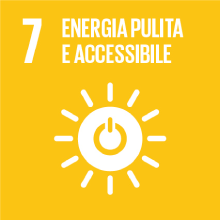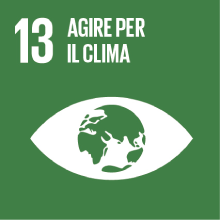CLIMATE CHANGE ECONOMICS: THEORY, METHODS AND APPLICATIONS
- Anno accademico
- 2019/2020 Programmi anni precedenti
- Titolo corso in inglese
- CLIMATE CHANGE ECONOMICS: THEORY, METHODS AND APPLICATIONS
- Codice insegnamento
- PHD088 (AF:324777 AR:170748)
- Modalità
- In presenza
- Crediti formativi universitari
- 6
- Livello laurea
- Master di Secondo Livello (DM270)
- Settore scientifico disciplinare
- SECS-P/01
- Periodo
- I Semestre
- Anno corso
- 1
- Sede
- VENEZIA
- Spazio Moodle
- Link allo spazio del corso
Inquadramento dell'insegnamento nel percorso del corso di studio
Risultati di apprendimento attesi
Prerequisiti
Contenuti
Welfare economics and basic concepts.
LECTURE 1 – Economic efficiency and economic concepts
LECTURE 2 – Public goods
ACTIVITY and homeworks: Hands on EKC and Kaya identity using R. Perpare a short discussion of your results based on the Kaya exercise
Week 2 - Why do we need environmental policies?
LECTURE 3 – Externalities and policy instruments (Standards, taxes, subsidies
LECTURE 4 – Policy instruments (Tradable permits),
ACTIVITY and homeworks: Hands on the EPS database. Read and prepare a short discussion of Schmalensee and Stavins vs Ellerman et al.
Week 3 - How can we decide about the implementation of environmental policies?
Environmental pollution: policy instrument design, overlapping regulations, environmental policy and innovation, the political economy of energy innovation.
LECTURE 5 – Policy instruments, innovation, institutions
LECTURE 6 – Introduction to IAMs and the debate on discounting
ACTIVITY: Students presentations of EPS analysis and Schmalensee and Stavins vs Ellerman et al. papers
Week 4 - How can we decide about the implementation of climate change policies? Role of models
Climate change as an economic, environmental problem. Focus on economy-wide modelling tools.
LECTURE 7 – Hands on GAMS and discussion on models
LECTURE 8– How to measures climate change costs and benefits
ACTIVITY: Simple DICE in GAMS
Testi di riferimento
Required readings:
Schmalensee and Stavins, The SO2 Allowance Trading System: The Ironic History of a Grand Policy Experiment
Ellerman, D., C. Marcantonini, Aleksandar Zaklan; The European Union Emissions Trading System: Ten Years and Counting, Review of Environmental Economics and Policy, Volume 10, Issue 1, 1 January 2016, Pages 89–107, https://doi.org/10.1093/reep/rev014
Botta E. and Kozluk T. (2014), “Measuring Environmental Policy Stringency in OECD Countries: A Composite Index Approach”, OECD Economics Department Working Papers,No. 1177, OECD Publishing. http://dx.doi.org/10.1787/5jxrjnc45gvg-en
Ameli, N., Brandt, N., & Pascal, A. (2014). What Impedes Household Investment in Energy Efficiency and Renewable Energy ?, 101–138. https://doi.org/10.1561/101.00000067
Jaffe, A. B., & Stavins, R. N. (1994). The energy-efficiency gap What does it mean ?, 22(10), 804–810.
Dasgupta S., De Cian E. and Verdolini E. (2016), The Political Economy of Energy Innovation, in “The Political Economy of Clean Energy Transitions”, (eds) D. Arent, C. Arndt, M. Miller, F. Tarp, O. Zinaman, Oxford University Press and Nota di Lavoro 35.2016, Milan, Italy: Fondazione Eni Enrico Mattei
van Vuuren, D.P., 2015. Integrated Assessment: Back to the Future. Utrecht University.
Stern, N., 2008. The economics of climate change. American Economic Review: Papers and Proceedings 98 (2), 1_37.
Nordhaus, W. D., 1991. To slow or not to slow: the economics of the greenhouse effect. Economic Journal 101 (407), 920_937.
Nordhaus, WD (1993). Rolling the DICE: An Optimal Transition Path for Controlling Greenhouse Gases, Resource and Energy Economics, 15, 27-50.
Dellink, R (2004). GAMS for environmental-economic modeling, Wageningen University. Available from the instructor.
Weyant, J. (2017). Contributions of Integrated Assessment Models. Review of Environmental Economics and Policy, Volume 11, Issue 1, 1 January 2017, Pages 115–137, https://doi.org/10.1093/reep/rew018
Metcalf and Stock (2017). Integrated Assessment Models and the Social Cost of Carbon: A Review and Assessment of U.S. Experience. Review of Environmental Economics and Policy, Volume 11, Issue 1, 1 January 2017, Pages 80–99, https://doi.org/10.1093/reep/rew014
Further readings will be assigned in class.
Modalità di verifica dell'apprendimento
Modalità di esame
Metodi didattici
Altre informazioni
Obiettivi Agenda 2030 per lo sviluppo sostenibile
Questo insegnamento tratta argomenti connessi alla macroarea "Cambiamento climatico e energia" e concorre alla realizzazione dei relativi obiettivi ONU dell'Agenda 2030 per lo Sviluppo Sostenibile


